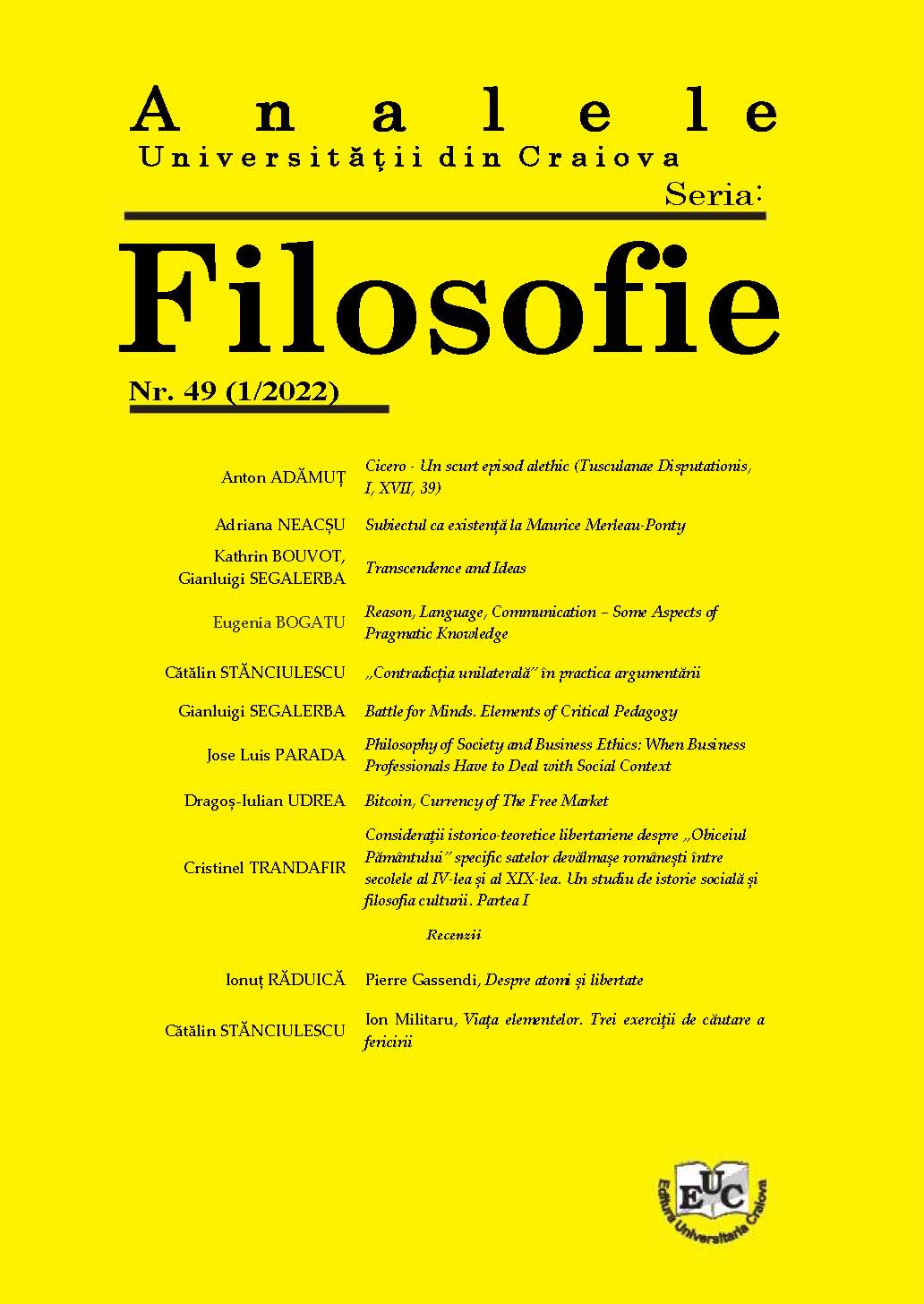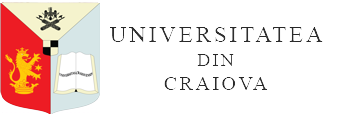TRANSCENDENCE AND IDEAS
DOI:
https://doi.org/10.52846/afucv.vi49.21Cuvinte cheie:
Ideas, Plato, Phaedo, transcendence, perception, Descartes, God, certainty, Locke, intellect, innatism, Berkeley, materialismRezumat
In our analysis we deal with some interpretations of the concept of the idea in the history of philosophy. We concentrate our investigations on the following authors: Plato, Descartes, Locke and Berkeley. In particular,
- Throughout our analysis of Plato, we interpret ideas as the entities which pave the way to the discovery of transcendence. Ideas show, by virtue of their existence, that not only the sphere of the average life and not only the sphere of perception exist. Correspondingly, individuals cannot be reduced to the dimension of their sphere perception. Through the recollection of the ideas, the subject can acknowledge that there is a reality dimension which transcends the dimension of the senses.
- Descartes enables us to observe the search for the conditions of certainty regarding the activity of the minds. Descartes’ strategy, through his inquiry into the innate idea of God and into the contents of this idea, is directed to the demonstration of the existence of God: the demonstration of the existence of God is functional to the foundation of the possibility of certainty of the mental and cognitive activities of the subject.
- Locke considers the dimension of the internal and external experience as the very root of the ideas: this position corresponds to Locke’s refusal of any form of innatism whatsoever. Locke does not admit any innate idea, and sees the origins of the ideas only in the external and internal experience. Innatism of whichever ideas cannot be accepted; the subject is completely dependent on his experience.
- A regards Berkeley, we concentrate our investigation on Berkeley’s strategy of refusal of materialism. In Berkeley’s view, there is nothing else than ideas in the mind of the subject. All objects are equivalent to ideas. From the existence of the ideas the subject cannot legitimately infer the existence of a reality which is independent of his own mind. The investigation on the characteristics and sources of the ideas demonstrates that there is no independent existence of entities outside God’s mind.


